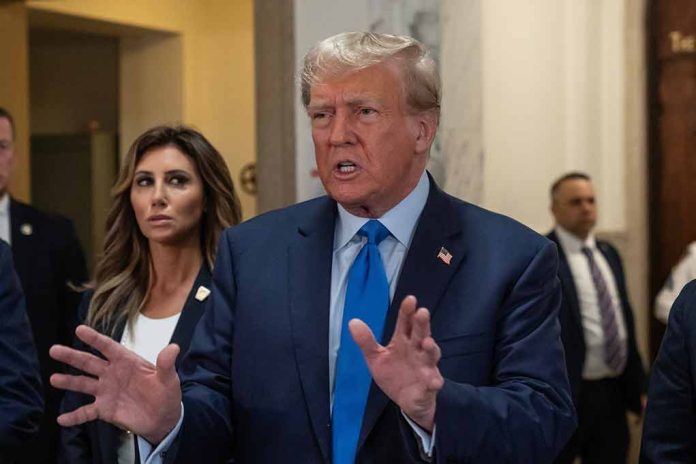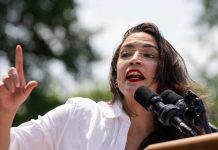
ABC’s Linsey Davis fact-checks Trump on abortion, igniting debate over media impartiality.
At a Glance
- ABC News moderator Linsey Davis fact-checked Trump’s abortion claims during a debate with Kamala Harris
- Trump falsely claimed states allow “execution” of babies after birth
- Davis clarified no U.S. state permits killing babies after birth
- The incident sparked controversy over media bias and journalistic integrity
- Debate covered topics including abortion rights, immigration, and crime
Trump’s Controversial Abortion Claims
During a recent presidential debate with Vice President Kamala Harris in Philadelphia, former President Donald Trump made several contentious statements about abortion that were swiftly fact-checked by ABC News moderator Linsey Davis. Trump claimed that some states allow the “execution” of babies after they are born, a statement that Davis immediately corrected.
Davis firmly stated, “There is no state in this country where it is legal to kill a baby after it’s born.” This direct fact-check marked a significant moment in the debate, as it was the first time moderators had directly challenged candidates’ claims during the event.
Fact-Checking and Media Reaction
The fact-checking didn’t stop with Davis. Co-moderator David Muir also corrected Trump on claims about illegal immigrants and crime rates. When Trump insisted his claims were true based on television reports, Muir countered with official statistics and statements from local officials.
“I just want to clarify here, you bring up Springfield, Ohio, and ABC News did contact the city manager there,” Muir said. “He told us they had no credible reports of pets or specific claims of pets being harmed, injured, or abused by individuals in the immigrant community.”
The fact-checking sparked a mixed reaction from the media and viewers. Some media members chuckled at the corrections, while others criticized the moderators for perceived bias. The incident highlighted the ongoing debate about the role of journalists in scrutinizing public figures’ statements and maintaining impartiality.
Abortion Rights and Political Divide
The debate brought the contentious issue of abortion rights to the forefront. Vice President Harris criticized Trump and highlighted the real-world consequences of strict abortion laws, citing cases where women were denied emergency care after miscarriages due to legal fears. Trump, for his part, denied plans to impose a national abortion ban.
“Let’s talk about the reality for women who suffer a miscarriage and are denied emergency care because doctors fear legal repercussions,” Harris stated, emphasizing the practical implications of abortion restrictions.
The exchange underscored the deep political divide on abortion rights in the United States, particularly in the wake of the Supreme Court’s decision to overturn Roe v. Wade in 2022. While Harris advocated for reinstating Roe v. Wade, Trump focused on leaving abortion laws to individual states.
Media Impartiality Under Scrutiny
The debate’s fact-checking moments reignited discussions about media impartiality and the responsibilities of journalists. Some viewers and commentators praised the moderators for holding candidates accountable, while others accused them of bias.
“These moderators are a disgraceful failure and this is one of the most biased, unfair debates I have ever seen,” Megyn Kelly wrote on X as the debate aired. “Shame on you @ABC.”
This incident serves as a stark reminder of the challenges facing modern journalism in an era of heightened political polarization. It raises important questions about the balance between fact-checking and perceived neutrality, and how media outlets can maintain public trust while ensuring accuracy in political discourse.
Sources:
1. Fact-checking the ABC News presidential debate
2.Every Time Donald Trump Was Fact-Checked During Debate
3. An OB-GYN Fact-Checks Trump’s Claims About Abortion During the First Presidential Debate














